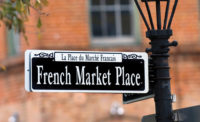
It was another cautious year for the adhesives and sealants industry, with mergers and acquisitions activity in 2003 almost a mirror image of 2002. The year 2003 saw a modest number of transactions, primarily small and medium-sized deals. The number of adhesives and sealants transactions decreased from 22 in 2002 to 20 in 2003. However, the current M&A market for adhesives and sealants appears to be gaining momentum.
As in 2002, most of the larger players in the adhesives industry made some progress toward improving their position in specified markets, which leveraged their core competencies, expanded their product offering and geographic reach, and reduced excess manufacturing capacity. This included GE, Henkel, RPM and W.R. Grace.
In one of the large transactions completed in 2003, GE continued its efforts to be a market leader in silicones, with its July acquisition of OSi Specialties from Crompton. The deal adds approximately $450 million in annual sales to GE Silicones and enhances its product offering in the silicones market. Clearly, GE is expecting large synergistic benefits as the deal was valued at approximately $1 billion (approximately 2.2 times annual sales - very high given market conditions and the maturity of the adhesives industry). The purchase price included $645 million in cash and an earn-out over the next three years. This was partially a "swap" transaction since Crompton, in connection with this transaction, obtained GE's Specialty Chemicals division, which is primarily a plastic additives business.
Earlier in 2003 GE Silicones also completed the acquisition of the Parfix adhesive and sealants business from Parchem Construction Products in Australia.
Henkel was once again active in making several mid-sized acquisitions, as it looked primarily to increase its international business. In July, Henkel announced the acquisition of the Makroflex construction sealants from YIT Construction, which had approximately $40 million in annual sales in Finland and Estonia. In October, Henkel announced that it was acquiring Desc's adhesive and construction materials business, a Mexico-based business, which had annual sales of approximately $100 million. The Desc acquisition complemented Henkel's consumer adhesive operations in Latin America, and provided improved access to the footwear, paper converting, and woodworking markets. Henkel also acquired Collano's hygiene adhesives business, which manufactures hot-melt adhesives for non-woven disposables.
Hot melts were involved in other 2003 transactions. Our firm worked with Western Adhesives, which was primarily a hot melt manufacturer, in its sale to H.B. Fuller. The Western transaction was a particular challenge for us because our client suffered a major fire in the midst of the sale process. Naturally, this changed the structure, pricing and timing of the sale, but change is part of the merger and acquisition process.
Other major players who looked to expand their product lines included RPM (with its acquisition of the Gloucester Co.), W.R. Grace (with its acquisition of Tricosal Beton-Chemie's specialty chemical assets), ADCO Global/Kommerling (with its acquisition of Chemetall's glass sealants and casting resins business), and Noveon (with its acquisitions of CDI Dispersions and Gemoplast SA).
Another active area for acquisitions was the medical market. Angiotech Pharmaceuticals acquired Cohesion Technologies, the developer of a variety of sealants with surgical applications. Nitto's acquisition of Elan Transdermal Technologies, a subsidiary of Elan focusing on transdermal drug delivery technology, helped strengthen its position in the areas of adhesive formulation and patch development in the medical area.
Nitto also acquired AcoustiSeal earlier in 2003. AcoustiSeal is a manufacturer of acoustic and sealant products used in automotive production to reduce noise and vibration.
The most popular area for acquisitions, however, appears to be the pressure-sensitive adhesive and label markets. Transactions in 2003 included CCL's acquisition of Avery Dennison's European package label converting business, Bostik Findley's acquisition of Johnson Polymer's Jon-Bond emulsion pressure-sensitive adhesives, W/S Packaging Group's acquisition of Gorilla Label, and Bemis/
MACtac's acquisition of Multi-Fix, which came just a few months after it was announced that Bemis was retaining ownership of MACtac because of a U.S. District Court injunction blocking the sale of MACtac to UPM-Kymmene.
Financial buyers were able to put at least some of their enormous stockpile of capital to work as they made a couple of high-profile acquisitions in 2003. The most notable one was Cyan Investments taking Pacer Technology private. The deal was valued at approximately $22 million (for all of Pacer's outstanding shares, some of which were already owned by Cyan). Another transaction involving a financial buyer was Berwind Group's acquisition of Elmer's Products, which was owned by KKR.
After having been burned with high-price acquisitions at the start of the decade, multiples of EBITDA during 2003 remained on the low side of the scale, as buyers looked for inexpensive ways to ramp up their product offerings. The low number of acquisitions is further evidence that buyers are choosing their acquisitions carefully.
During 2004, we expect that merger and acquisition activity will increase and that prices will follow suit. Companies appear to be gaining comfort with their own operations, showing signs of stability and improvement, and are starting to look for higher value candidates in order to grow their businesses. We believe that at least two large deals will arise in the second half of the year, as pricing steadies and long-term considerations prevail. The larger adhesive companies will continue their focus on a relatively small number of high-quality sellers. The market is currently priced at a small premium over long-term values, and synergistic buyers continue to search for the consolidation benefits that can be realized in compatible acquisitions.
We believe that the final portion of 2004 will generate renewed inflation. Inflation tends to increase capitalization rates and decrease values of businesses. For this reason, we predict that the market values of companies will be lower in 2005 than during 2004. This is one reason why sellers will need to properly time their sale efforts as well as attract competition and work with their advisors to effectively manage the sale process and obtain the highest possible price.
Stephen Einhorn is founder and president of Einhorn Associates, a Milwaukee-based consulting firm specializing in mergers and acquisitions in adhesives and sealants. For more information, phone 414-453-4488, e-mail einhorn@einhornassociates.com , or visit http://www.einhornassociates.com .


